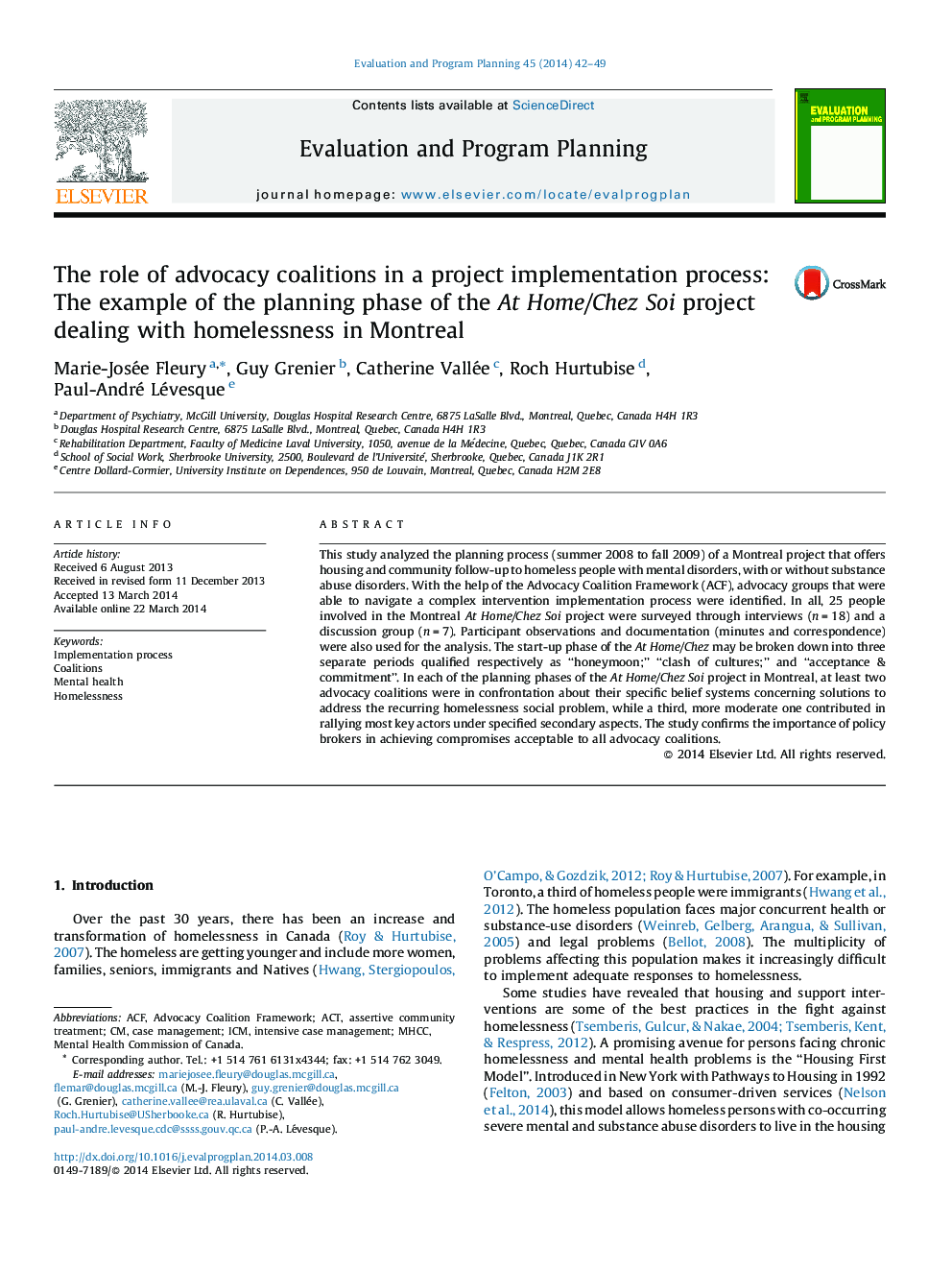| Article ID | Journal | Published Year | Pages | File Type |
|---|---|---|---|---|
| 322467 | Evaluation and Program Planning | 2014 | 8 Pages |
•Divergences in their respective belief systems explain conflicts between coalitions.•Importance of policy brokers in achieving compromises acceptable to all advocacy coalitions.•Need to sustain collective and strong leadership throughout the entire implementation process.•Importance of establishing a balance between autonomy and central governance.
This study analyzed the planning process (summer 2008 to fall 2009) of a Montreal project that offers housing and community follow-up to homeless people with mental disorders, with or without substance abuse disorders. With the help of the Advocacy Coalition Framework (ACF), advocacy groups that were able to navigate a complex intervention implementation process were identified. In all, 25 people involved in the Montreal At Home/Chez Soi project were surveyed through interviews (n = 18) and a discussion group (n = 7). Participant observations and documentation (minutes and correspondence) were also used for the analysis. The start-up phase of the At Home/Chez may be broken down into three separate periods qualified respectively as “honeymoon;” “clash of cultures;” and “acceptance & commitment”. In each of the planning phases of the At Home/Chez Soi project in Montreal, at least two advocacy coalitions were in confrontation about their specific belief systems concerning solutions to address the recurring homelessness social problem, while a third, more moderate one contributed in rallying most key actors under specified secondary aspects. The study confirms the importance of policy brokers in achieving compromises acceptable to all advocacy coalitions.
